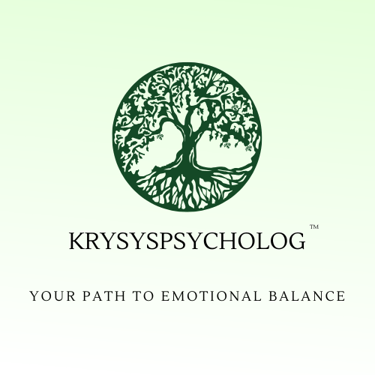Setting Personal Boundaries for Emotional Balance
Discover the importance of personal boundaries in achieving emotional balance and self-respect. Learn effective strategies for setting and protecting your boundaries while fostering healthy relationships.
1/28/20252 min read
Introduction
Learn what personal boundaries are and how the serve as a tool for maintaining inner balance. This article explores how to define and protect your boundaries and how to handle their violations. Build healthy relationships and respect yourself.
What Are Personal Boundaries?
Personal boundaries are invisible lines that define where your personality ends and others begin. They act as a form of protection, helping to maintain physical, emotional, and psychological comfort. Boundaries allow you to say "no" to what does not suit you and "yes" to what aligns with your values and needs.
Why Are Personal Boundaries Important?
Personal boundaries serve several essential functions:
Protecting Your Space:
They help ensure others do not invade your comfort zone.
Conserving Energy:
The ability to say "no" prevents wasting energy on unnecessary matters.
Building Healthy Relationships:
Establisching boundaries fosters relationships based on mutual respect.
Signs That Your Boundaries Are Being Voleted
Some indicators that someone is crossing your boundaries include:
Feelings of resentment, frustration, or guilt.
Fatigue from constantly fulfilling others' requests-
Fear of saying "no" orpressure to be "convenient".
Lack of time for your personal needs.
How to Establisch Personal Boundaries
1. Recognize Your Needs.
Reflect on what is acceptable and what is not. What situtions make you feel uncomfortable?
2. Learn to Saying "No".
Sayin no is your right. Be polite but firm:
"That doesn't work for me".
"I'm busy right now".
3. Clearly Define Your Boundaries.
Example:
"I can discuss this tomorrow, but right now I'm occupied".
"Please inform me in advance about your visit".
4. Stay Calm.
People may react differently to your boundaries. Avoid justifying yourself - stick to your position with confidence.
5. Practice in Small Steps.
Start with minor refusals to gain confidence in Setting boundaries.
6. Limit Contact with Toxic People.
If someone does not respect your boundaries, reduce communicstion or set minimal acceptable interaction levels.
Why Protecting Your Boundaries Matters
You lern to respect yourself.
You save time and energy for truly important things.
You feel more confident.
Your relationships with others become healthier.
What to Do If Your Boundaries Are Not Respected?
If someone continuously ignores your boundaries, consider the following steps:
Remind Them Again.
Politely but firmly clarify that your requests should be respected.
Reduce Interaction.
If someone disregards your boundaries, limit contact with them.
Seek Support.
A psychologist can help you develop stronger boundary-setting skills.
Final Thought
Personal boundaries are the key to inner peace and harmony. Respect yourself, and others will start respecting you too. Remember: you have the right to be yourself and choose what is acceptable in your life.

Overcoming Relationship Crisis: Strategies for Growth
Discover how every relationship crisis is an opportunity for growth. Learn about different types of family crises, their causes, and effective coping strategies to strengthen your relationship and navigate through difficulties.
Footer
Psychological services in crisis moments of life.
Contacts
About us
E-mail: info@krysyspsycholog.com
Call or Message via WhatsApp
© 2025 All rights reserved. Privacy Policy | Terms of Use | Cookie Policy
